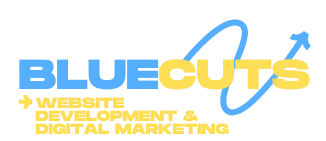Introduction
Picking a website platform affects your online ranking, growth potential, and user experience. This guide breaks down WordPress, Shopify, and Webflow to help you choose the best one for your small business and improve your online ranking in 2025.
1. Why Choosing the Right Platform Matters
Your choice determines scalability, SEO ranking, conversion capability, and maintenance. A platform aligned with your goals helps you execute digital marketing strategies more effectively.
2. WordPress: Power, Customization & Ranking Benefits
WordPress offers unmatched flexibility—thousands of themes, plugins (like Yoast SEO), and cost-effective hosting. You retain control of your content and ranking over time. It scales seamlessly from blog to ecommerce solution.
Recommendation from Reddit:
“WordPress with Elementor is great for flexibility and scalability… For business websites, check butternut.ai.”
Pros:
- High customization
- Strong SEO tools
- Affordable at start
Cons:
Technical knowledge needed
Requires updates and maintenance
3. Shopify: Ecommerce Efficiency and Performance Ranking
Shopify excels for businesses prioritizing sales and fast setup. It delivers scalable infrastructure, AI-powered tools like Shopify Magic, and built-in app ecosystem. It’s designed to drive ecommerce performance and ranking.
Reuters
Pros:
- User-friendly for ecommerce
- Reliable and scalable
- Excellent app ecosystem
Cons:
Limited design control
Monthly fees and app costs

4. Webflow: Design Flexibility with SEO Advantages
Webflow combines visual design control with clean code exports. It’s ideal for designers who want pixel-perfect sites and built-in SEO tools.
Elegant Themes
Pros:
- Full design control
- Built-in SEO and hosting
- Ideal for custom layouts
Cons:
Less intuitive for beginners
Higher learning curve
5. Comparison Table
| Platform | Best For | SEO/Ranking Strengths | Trade-offs |
|---|---|---|---|
| WordPress | Control & scalability | Extensive plugins, full ownership | Requires technical upkeep |
| Shopify | Ecommerce growth | Optimized for conversion & performance | Higher costs, design limitations |
| Webflow | Custom and SEO-focused design | Clean code, SEO tools, modern UX | Steep learning curve |
6. Linking Strategy
Internal Links:
- Link WordPress section to your Services page when highlighting development & customization.
- Link Shopify section to a Portfolio case study (e.g., F&B ecommerce projects).
- Link Webflow section to Clients page or a UX/UI showcase.
External Backlinks:
TechRadar and ElegantThemes confirm Webflow and Shopify strengths. Elegant ThemesTechRadar+1TechRadar+1
Forbes recommends WordPress for long-term SEO success.
Shopify’s AI ecommerce tools detailed in Reuters. Reuters

7. Conclusion
WordPress leads for control and long-term ranking, Shopify dominates ecommerce performance, and Webflow shines for customized design with built-in SEO. Choose the one that aligns with your vision and watch your site’s ranking improve.
Want help building or migrating your site to one of these platforms?
Book Your Strategy Call
